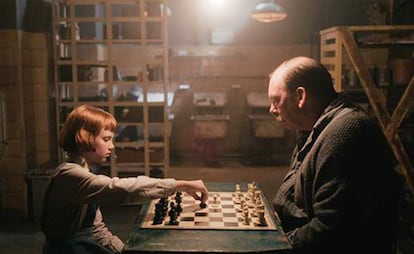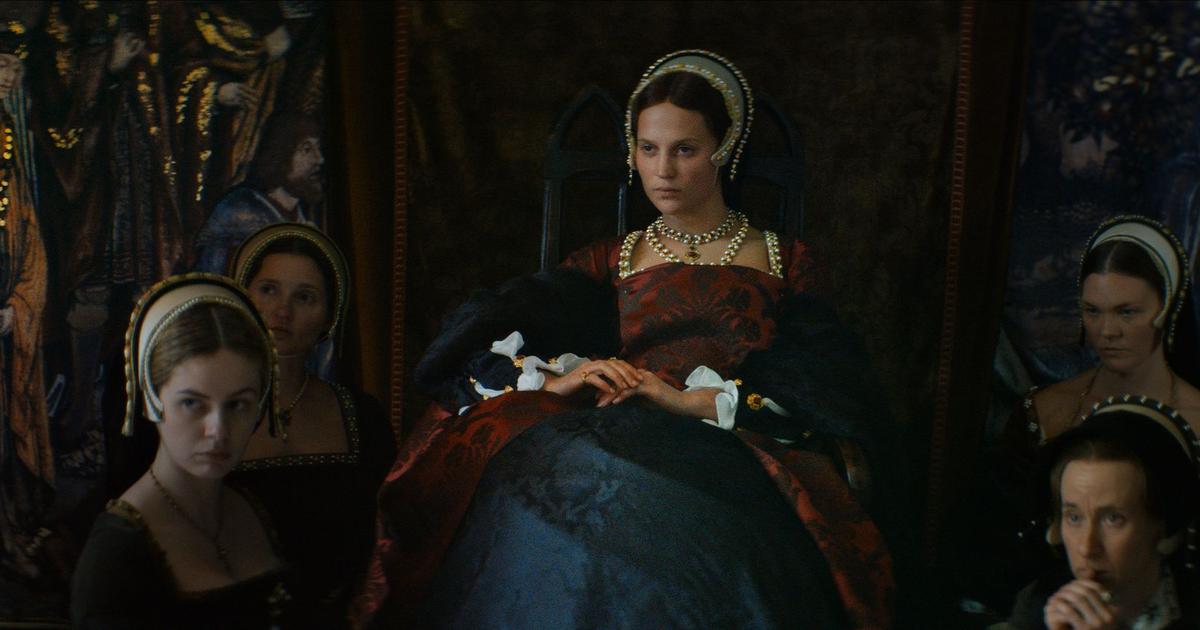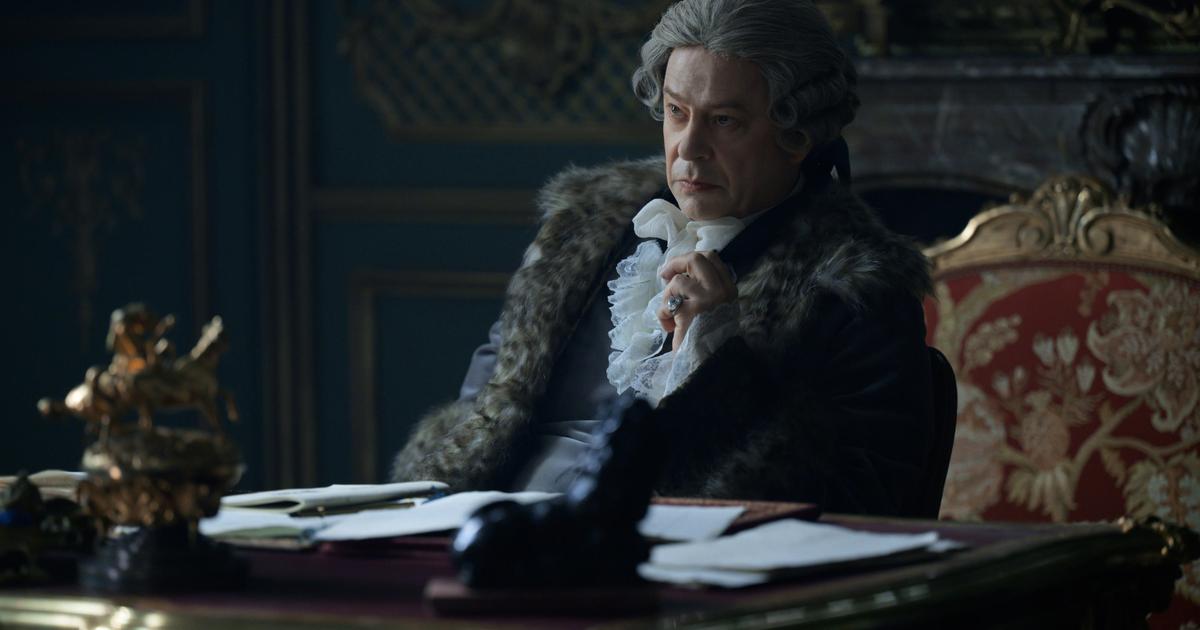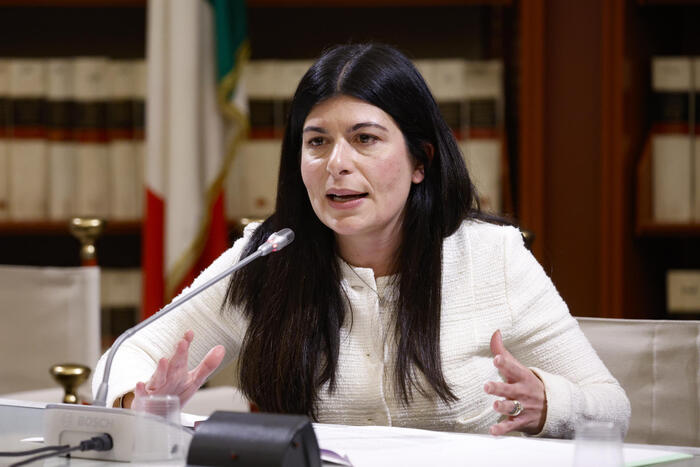The
Lady's Gambit
(Netflix) series has received an Emmy just days after former chess world champion Nona Gaprindashvili sued Netflix over a line from the script claiming that she did not play against men.
They are two striking facts that illustrate the black and white of the miniseries: it reflects with great fidelity some facets of mental sport and squeaks in others in a highly criticizable way.
Gaprindashvili, 80, filed the defamation lawsuit in Los Angeles.
He asks for five million dollars (4.26 million euros) and that this line be deleted from the script: "Nona Gaprindashvili [...] is the women's world champion and has never faced men."
The former champion is right that the phrase is misspelled, although it would be enough to change it a bit to make it accurate: Gaprindashvili was five-time world champion (1962-78) in tournaments and duels that only women played, but she faced many men in others. competitions, and won not a few.
The 'Lady's Gambit' team after receiving the award for best miniseries or television movie last Sunday at the Emmys.
The judge's task will be tricky if he wants to clarify the cause of the error: mere negligence in the care of the details or, as the plaintiff argues, "blatant and deliberate lie" with the purpose of "intensifying the drama", in the sense that the protagonist of the series, Beth Harmon (played by Anya Taylor-Joy), was the only chess player in history up to that moment (1968) who had won over men (flatly false).
If the judge carefully examines the seven chapters of the series, he will find arguments to substantiate the malicious intent alluded to by Gaprindashvili. Some are venial sins, typical in the cinema to give more vigor and rhythm to the story; for example, the tremendous blows to the clock during the games or that none of them ends in a draw or that the players talk while playing in highly competitive tournaments. And if we talk about dubbing into Spanish, it is amazing that Netflix did not hire an expert to correct the abundant translation errors.
But there is one much more objectionable because it sends a false and dangerous message: Beth Harmon only loses one official game, and nothing less than the US champion, in its progression until facing the world champion.
That is impossible, no matter how enormous the talent of a boy or girl may be.
And, even more serious, it sends a pernicious message to a society that has magnified quick and theoretically easy success, disregarding the high educational value of failure or defeat.
Soviet passion
In chess, the influence of luck or the referee or the weather is close to zero.
If you lose, your opponent has played that day better than you, and that means that you can make a very precise self-criticism, which will tell you where you have failed and what you must do next time to avoid it.
School teachers who use it as an educational tool have a very powerful message: in chess, more than in any other sport, the loser learns the most.
Still from Lady's Gambit.
Curiously, Gaprindashvili also symbolizes one of the most praiseworthy aspects of the series, which recreates very well, without any exaggeration, the tremendous passion for chess in the Soviet Union (USSR), the largest country in the world until its collapse, in 1991 Of its 287 million inhabitants, about 50 practiced it sporadically (schools, clubs, senior centers, barracks ... and even outdoors in summer); and between four and five were federated players.
Contrary to what is often claimed, chess was never a compulsory subject in the USSR. But it is one of the arguments to explain the greatest contradiction that the author of these lines found during his months of stay in several trips, between 1985 and 1990, as a special envoy of EL PAÍS: the quality of the education of Soviet children was very tall, but those well-educated children later landed in a very corrupt, rotten society lacking basic freedoms (especially those to express themselves freely and travel). In the afternoons, the students voluntarily went to the Pioneer Palaces, where they could choose computer science, dance, piano, chess, theater, etc. But with a strict rule: no matter how great the talent and commitment in any of these disciplines:a morning failure in mathematics or language involved expulsion from the Palace of the Pioneers until the morning failure was corrected.
In chess, more than in any other sport, the loser learns the most
In
Queen's Gambit
crowd scenes clustered on the streets of Moscow to cheer on the players when they leave the tournament they are.
That coincides, for example, with what was seen every day at the doors of the Tchaikovsky Theater in 1985, during the two and a half months of the second World Championship match between Anatoly Karpov and Gari Kasparov.
The streets were closed to traffic so that their official cars sped past each departure day, while thousands of people waved at them from the sidewalks.
More than once, the taxi drivers refused to charge the undersigned for the ride back to the hotel, in gratitude for the account they had just heard of what was happening behind the scenes.
In addition, Gaprindashvili embodies a very special symbol of that inordinate passion because she is Georgian, and not Russian as claimed in the series, reflecting the widespread error of confusing the Soviets with the Russians (the difference between a Latvian and an Uzbek, for example , is as big as that of a Norwegian and a Moroccan). In Georgia, the nuptial dowry included a game of chess since the 11th century. Outstanding chess players are great national heroines, and Gaprindashvili was the first Georgian world champion.
Ana Matnadze, today Spanish and winner of many medals, was her favorite student: “What I learned from her is among the best of my life.
Her sense of justice is tremendous, and makes her capable of agreeing with someone of lesser rank in public with total naturalness ”.
In 2002, at the age of 19, Matnadze won the First League, which gave access to the final of the Absolute Georgia Championship, beating nine male rivals: “Nona's joy was enormous.
When we left the Chess Palace in Tbilisi there were a lot of players on the street.
She looked at all of them, caught their attention, pointed at me, and said: "You cannot blame Ana for anything. She has treated you all the same."
You can follow EL PAÍS TELEVISIÓN on
or sign up here to receive
our weekly newsletter
.









/cloudfront-eu-central-1.images.arcpublishing.com/prisa/CT46QWOS7BDG7CMTYZI73DIKTM.jpg)